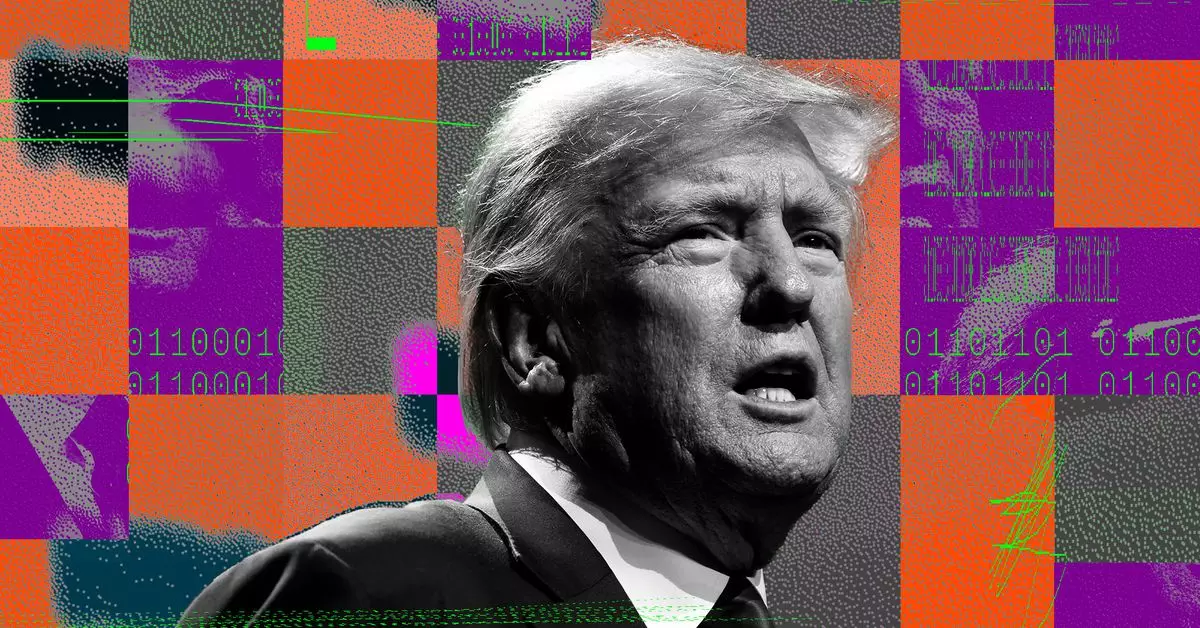The ongoing debate surrounding TikTok in the United States has garnered significant attention, particularly in the context of national security and freedom of expression. With President-elect Donald Trump recently filing an amicus brief to the Supreme Court, the stakes have escalated. Trump’s appeal to negotiate a deal to ensure TikTok’s survival amid impending bans highlights profound political maneuvering and raises critical questions about the intersection of technology and governance.
The Supreme Court has become an unexpected battleground in the ongoing TikTok debate. An essential aspect of this situation involves a bill passed by Congress that seeks to ban TikTok, citing concerns over national security due to its ownership by the Chinese company, ByteDance. This legislation provides the President with a degree of leeway, allowing for delays in enforcement if negotiations toward protecting American user data are deemed to be progressing. However, with a firm deadline set for January 19th, just ahead of Trump’s inauguration, the timeframe pressures the court to act rapidly.
In his brief, Trump asserts the need for the Supreme Court to stay the fast-approaching deadline, postulating that he possesses the unique expertise, electoral backing, and political will to orchestrate a resolution to this contentious issue. He frames the potential agreement as a pathway for mitigating First Amendment concerns, suggesting that his expertise could negate the need for judicial review entirely. However, the lack of specific details regarding what such negotiations would entail raises questions about the actual viability of Trump’s proposal.
What is particularly intriguing about this situation is the duality of Trump’s relationship with TikTok. During his first term, Trump was a vocal advocate for banning the application, framing it as a threat to U.S. national security. Ironically, as political tides shifted and TikTok became an asset in his campaign strategy for the 2024 elections, he has embraced a more conciliatory tone. Trump’s claim that TikTok serves as a “unique medium for freedom of expression” suggests a pragmatic shift towards recognizing its influence in contemporary digital discourse.
Moreover, Trump’s vast following on the platform, coupled with his ownership of Truth Social, ostensibly positions him as an influencer in this digital landscape. This connection raises the broader issue of how government action can inadvertently impact public discourse and individual liberties. By citing the Brazilian government’s temporary ban on Elon Musk’s platform X as a cautionary example, Trump underscores the dangers of governmental overreach in controlling social media.
Nevertheless, Trump’s attempts to negotiate a settlement for TikTok are far from universally welcomed. A coalition of bipartisan lawmakers, alongside 22 U.S. states and former FCC Chairman Ajit Pai, have actively petitioned the Supreme Court to dismiss TikTok’s appeal. This pushback indicates a continued heightened concern regarding the app’s security implications, revealing a complex political landscape where national security is weighed against user freedoms.
The motivations behind the congressional push are diverse and indicative of deeper ideological divides. Some lawmakers remain staunchly convinced that TikTok presents a tangible risk to American data security, while others view it as an infringement upon digital liberties for American citizens. As such, the divided response from policymakers highlights the underlying tensions at play in the broader discourse on technology regulation.
As the Supreme Court prepares to address the various facets of the TikTok predicament, the outcome may set a significant precedent for the future of digital platforms in the U.S. The implications of this situation extend beyond TikTok itself, posing critical questions about the power dynamics between corporate entities, the state, and users.
In this context of uncertainty, it is vital for policymakers to strike a balance between ensuring national security and protecting individual rights. As negotiations and legal battles unfold, the outcomes will inevitably shape how technology interacts with governance, freedom of expression, and the essence of democracy in the digital age. The TikTok dilemma is but a microcosm of a larger phenomenon, calling for introspection and foresight as society navigates the complexities of a hyper-connected world.


Leave a Reply
You must be logged in to post a comment.